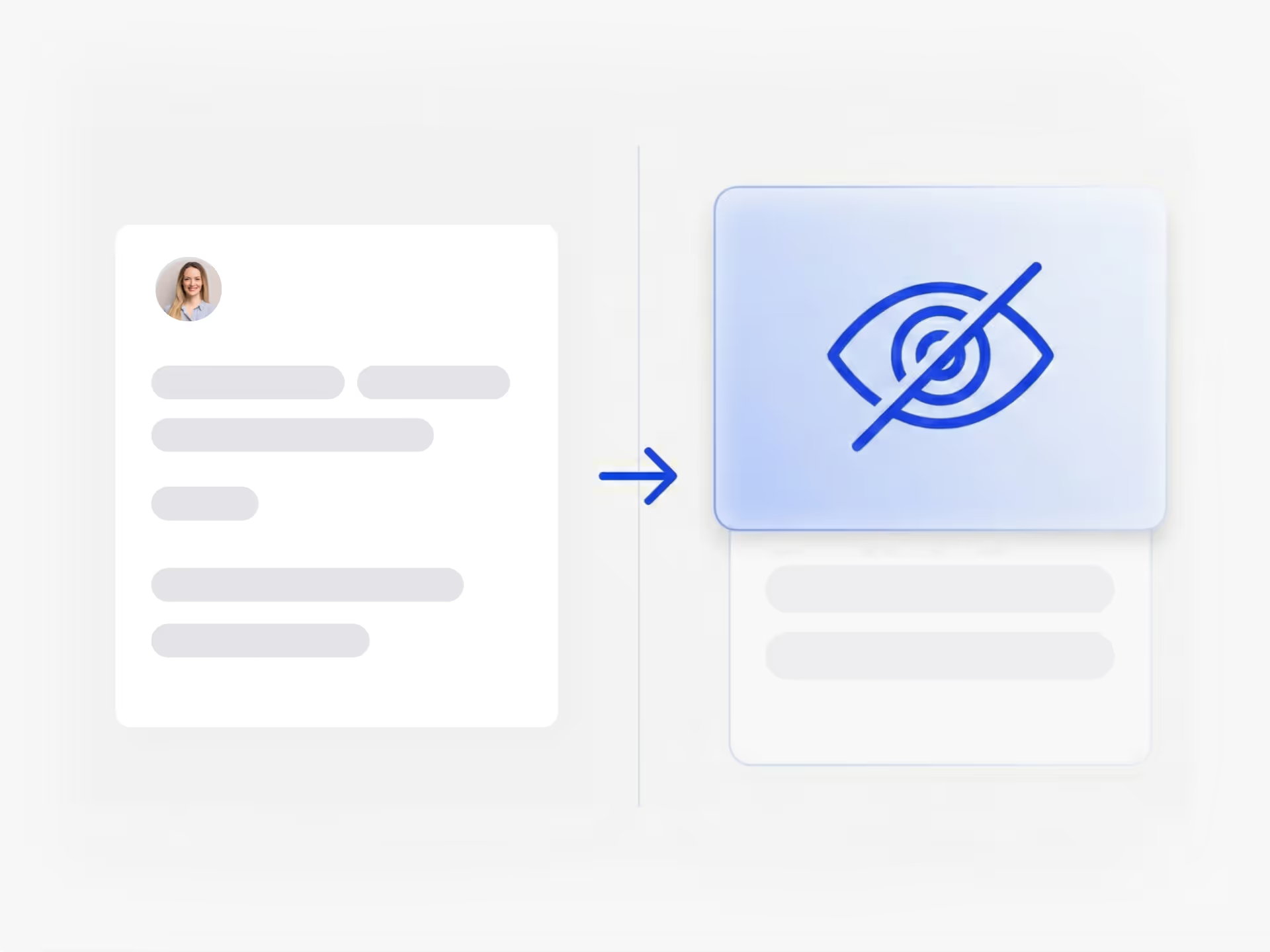Only show what you need.
Sometimes ideas need privacy. With Ideanote you can decide to hide or reveal ideas in your innovation process.

How Do You Protect Sensitive Ideas While Still Collecting Input?
Your team needs to submit ideas freely. At the same time, you need to protect intellectual property and prevent sensitive information from reaching the wrong people.
Ideanote lets you control what people see at every stage of your innovation process. You choose which phases and activities to hide or reveal. One department might submit ideas without seeing what others have sent. A review committee might evaluate proposals before anyone else views them. Executives might access detailed reports while other users see only approved content.
You control visibility on a phase-by-phase level or across entire idea collections. This means you set up processes where engineers submit ideas directly to a review team, or where employees contribute to competitions without seeing competitor entries, or where financial data stays visible only to authorized stakeholders.
The result is a process where the right people see the right information at the right time. You collect ideas without compromising confidentiality. You maintain transparency where it helps and privacy where it matters.
Ideanote gives you the flexibility to build secure, data-driven innovation workflows without sacrificing participation or control.
Who decides what gets hidden and what stays visible?
You set the rules. Admins and workspace owners control which phases and activities stay visible and which ones get hidden. You choose this at the collection level or for specific phases in your workflow.
This means you decide when submitters see other ideas, when evaluators see ratings, and when stakeholders see progress. You tailor visibility to match your process and your team's needs.
Do people submitting ideas see what others have submitted?
Only if you want them to. You control whether submitters see other submissions or only their own. Many organizations hide submissions during intake to protect sensitive information, prevent groupthink, or run fair competitions.
When you hide idea content, people still submit through the same form. They simply do not see the ideas others have shared until you choose to reveal them.
How do I hide sensitive information from most users but share it with a review committee?
You assign different permission levels to different user groups. Your review committee gets access to view and evaluate ideas, while other users only see what you choose to show them. You set these permissions when you configure your collection or phase.
This approach works well when ideas contain financial data, strategic plans, or intellectual property. The right people evaluate the content while you keep information secure.
Do I hide entire ideas or just parts of the workflow?
You choose. You hide entire ideas from view, or you hide specific phase activities like ratings, comments, or evaluations. This lets you show people where an idea stands in your process without revealing detailed feedback or scores.
For example, you might show everyone which ideas moved to testing but hide the evaluation scores and internal comments from that phase.
Does hiding content affect reporting and data collection?
No. When you hide content from users, the system still collects all data. Your reports and dashboards continue to track submissions, ratings, and progress. You still get the metrics you need to manage your innovation process.
Hiding content controls what people see in the interface. Your analytics and reporting tools still access everything behind the scenes.
How does pre-moderation work with hidden content?
You combine hidden content settings with your workflow permissions. When someone submits an idea, you keep it hidden from the broader audience. Your moderators or admins review submissions first, then move approved ideas to a phase where others see them.
This gives you control over what goes public while still collecting all submissions. You filter out duplicates, off-topic ideas, or content that needs refinement before wider visibility.
Does hiding phases confuse users about where their idea stands?
You control what people see about their own ideas versus others' ideas. When someone submits an idea, they still track their own submission and see updates relevant to them. What they do not see are other submissions, internal ratings, or phases you have marked as hidden.
Most teams find this reduces noise and lets contributors focus on their own submissions rather than browsing everything in the system.
Smart and Easy Idea Management
Talk to our Experts or try Ideanote for free. No credit card required.







